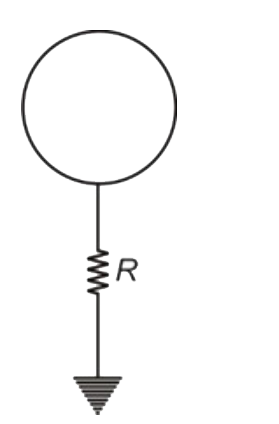On the surface of the earth at 1 atm pressure, a balloon filled with gas occupies 500mL. This volume is of its maximum capacity. The balloon is left in air. It starts rising. The height above which the balloon will burst if temperature of the atmospere remains constant and the pressure decreases 1 mm for every 100cm rise of height is:
120m
136.67m
126.67m
100m
The correct Answer is:c
Step by step video, text & image solution for On the surface of the earth at 1 atm pressure, a balloon filled with H_(2) gas occupies 500mL. This volume is (5)/(6) of its maximum capacity. The balloon is left in air. It starts rising. The height above which the balloon will burst if temperature of the atmospere remains constant and the pressure decreases 1 mm for every 100cm rise of height is: by Chemistry experts to help you in doubts & scoring excellent marks in Class 11 exams.
Topper's Solved these Questions
Similar Questions
On the surface of the earth at 1 atm pressure, a balloon filled with H2 gas occupies 500mL. This volume is 56 of its maximum capacity. The balloon is left in air. It starts rising. The height above which the balloon will burst if temperature of the atmospere remains constant and the pressure decreases 1 mm for every 100cm rise of height is:
View SolutionA blown-up balloon has a volume of 500 mL at 5∘C . The balloon is distended to 7/8 of its maximum stretching capacity. Will the balloon burst at 30∘C? Determine the minimum temperature above which it will burst.
View Solution
Knowledge Check
- Question 1 - Select One
A bolloon blown up has a volume of 300 mL at 27% C. The balloon is distended to 56 of its maximum stretching capacity. The maximum temperature above which it will burst is
A77∘CB67∘CC57∘CD87∘C - Question 2 - Select One
A cylinder with a movable piston is filled at 25∘C with a gas that occupies a volume of 30.5cm3. If the maximum capacity of the cylinder is 45.8cm3, what is the highest temperature to which the cylinder can be heated at constant pressure without having the piston come out?
A50∘CB147.5∘CC174.5∘CD120∘C - Question 3 - Select One
Statement I: A hydrogen-filled balloon stops rising after it has attained a certain height in the sky.
Statement II: The atmospheric pressure decreases with height and becomes zero when the maximum height is attained.AStatement I is true, statement II is true and Statement II is a correct explanation for Statement I.BStatement I is true, Statement II is true and Statement II is NOT the correct explanation for Statement I.CStatement I is true, Statement II is false.DStatement I is false, Statement II is true.
A ballon blown up with 1 mole of gas has a volume of 480mL at 5∘C The balloon is filled to (7/8) th of its maximum capacity Suggest
(a) Will the balloon burst at 30∘C
(b) The minimum temperature at which it will burst
(c ) The pressure of gas inside the balloon at 5∘C
(d) The pressure of gas when balloon bursts .View SolutionA sample of O2 is at a pressure of 1 atm when the volume is 100 ml and its temperature is 27∘C. What will be the temperature of the gas if the pressure becomes 2 atm and volume remain100ml.
View SolutionAn expansible balloon filled with air floats on the surface of a lake with 2/3 of its volume submerged. How deep must it be sunk in the water so that it is just in equilibrium neither sinking further nor rising? Is is assumed that the temperature of the water is constant & that the height of the water barometer is 9 meters.
View SolutionA conducting bolloon of the radius a is charged to potential V0 and held at a large height above the earth ensures that charge distribution on the surface of the balloon remains unaffected by the presence of the earth. It is connected to the earth through a resistance R and a value in the balloon is opened . The gas inside the balloon escapes from value and the size of the balloon decreases. The rate of decrease in radius of the balloon is controlled in such a manner that potential of the balloon remains constant. Assume the electric permittivity of the surrounding air equals to that of free space (ε0) and charge cannot leak to the surrounding air.

The rate at which radius r of the balloon changes with time is best represented by the equationView SolutionAn air bubble starts rising from the bottom of a lake and its radius is doubled on reaching the surface. If the temperature is costant the depth of the lake is. (1 atmospheric pressure =10m height of water column)
View Solution

